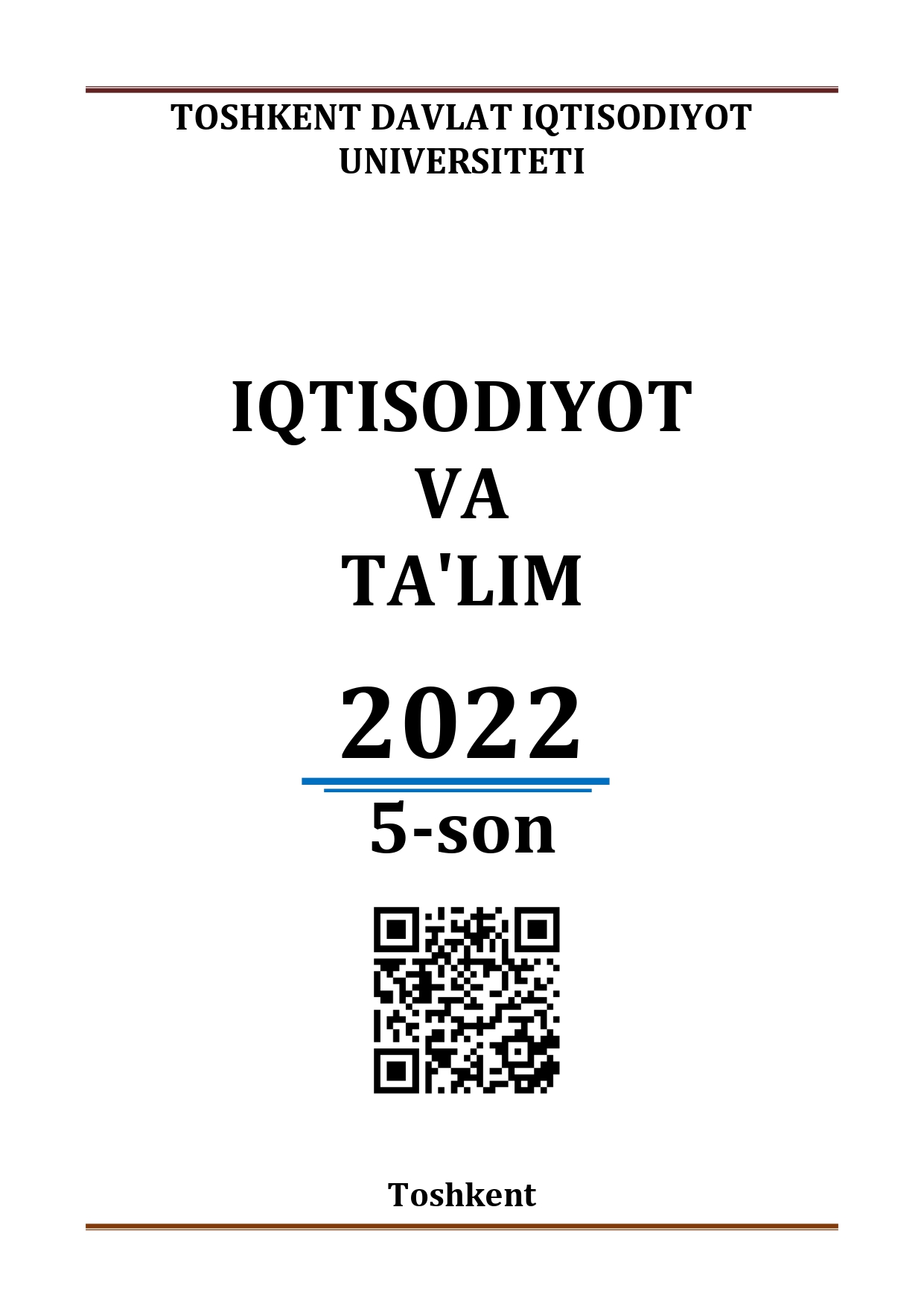Аннотация
Развитие промышленности привело к резкому увеличению экологических проблем. В результате в последнее десятилетие ХХ века учеными разработана концепция устойчивого развития. Основной целью этой концепции является достижение экономического процветания при сохранении природных ресурсов и без социальных конфликтов. Хотя индустрия туризма является ресурсосберегающей отраслью по сравнению с другими отраслями, сегодня отчетливо видно воздействие индустрии туризма на окружающую среду. Именно поэтому многие ученые считают, что туризм должен приносить экономическую выгоду, не нанося вреда окружающей среде и обществу. В результате их исследований в науку был введен термин «устойчивый туризм». В данной статье анализируются научные подходы ученых разных стран к научному устойчивому туризму с момента появления слова «устойчивый туризм» и автор дал авторское определение термина устойчивый туризм.
Библиографические ссылки
UNWTO. International tourism highlights. 2019 Edition, Madrid, Spain. Retrieved from https://www.e-unwto.org/doi/pdf/10.18111/9789284421152
Rahimova N.A. Pandemiyaning turizm sanoatiga ta‘siri tahlili. // Экономика и финансы (Узбекистан). 2021. № 9 (145). URL: https://cyberleninka.ru/article/n/pandemiyaning-turizm-industriyasiga-tasiri-tahlili (дата обращения: 13.07.2022).
UNWTO. 2017 is the international year of sustainable tourism for development. Retrieved from http://www.unwto.org/archive/global/press-release/2017-01-03/2017-international-year-sustainable-tourism-development
Багриновский К.А. Имитационные системы принятия экономических решений. / К.А.Багриновский. – М.: Наука, 1989. – 168 с.
Harris R. & Leiper N. Sustainable tourism. An Australian perspective. Chatswood, Australia: Butterworth-Heinemann, 1995.
Eber S. Beyond the Green Horizon: A Discussion Paper on Principles for Sustainable Tourism. Godalming, UK: Worldwide Fund for Nature, 1992.
Payne R. Sustainable tourism: Suggested indicators and monitoring techniques. In Tourism and Sustainable Development: Monitoring, Planning, Managing, ed. J.G.Nelson, R.W.Butler and G.Wall, Waterloo, Ontario: University of Waterloo. 1993. Pp. 249-54.
Wall G. Is ecotourism sustainable? Environmental Management. 1996.
Coccossis H. Tourism and sustainability: Perspectives and implications. Wallingford, Oxford: CAB International. 1996. Pp. 1-21.
Buckley R.C. Tourism ecolabels. Annals of Tourism Research, 2002. Pp. 183-208.
Report of the World Commission on Environment and Development: Our Common Future. https://sustainabledevelopment.un.org/content/documents/5987our-common-future.pdf
Repetto R., World Enough and Time. New Haven: Yale University Press, 1986.
Sustainable development of tourism, Report of the Secretary-General (Document No. E/CN.17/2001/PC/21), New York, UN. 2001.
Earth Summit +5–Programme for the Further Implementation of Agenda 21, UN, New York, 1998.
Tourism and sustainable development, Report of the Secretary-General UN, (Document No. E/CN.17/1999/5), UN. New York, 1999.
“Québec Declaration on Ecotourism”, agreed at the World Ecotourism Summit and available at http://www.uneptie.org/pc/tourism/ecotourism/wes.htm. UNEP, 2002.
Actions in assisting developing countries to implement Agenda 21 undertaken by the World Tourism Organization since 1992, (Document No. DESA/DSD/PC2/BP3), New York. UNWTO, 2001.
GA resolution A/RES/56/212 of 21 December. 2001.
Report of the World Summit on Sustainable Development. New York, UN 2002.
Haas P.M. “UN Conferences and constructive governance of the environment”, Global Governance 8. 2002.
Butler R. Tourism – an evolutionary approach. In J.G.Nelson, R.W.Butler & G.Wall (Eds.), Tourism and Sustainable Development: Monitoring, Planning, Management Waterloo, Canada: University of Waterloo. 1993. Pp. 27-44.
Wight P. Supporting the principles of sustainable development in tourism and ecotourism: Government’s potential role. Current Issues in Tourism, 2002. Pp. 222-254.
Fyall A., Garrod B. Sustainable tourism: Towards a methodology for implementing the concept. In M.J.Stabler (Ed.), Tourism and sustainability. Principles to practice Wallingford, UK: CAB International.1997. Pp. 51-68.
Butowski L. Sustainable Tourism − A Model Approach. Visions for Global Tourism Industry − Creating and Sustaining Competitive Strategies, Available at: https://www.intechopen.com/books/visions-for-global-tourism-industry-creating-and-sustaining-competitive-strategies/sustainable-tourism-a-modeling-approach
Kijakbaeva E.G. Social’no-jekonomicheskie mehanizmy ustojchivogo razvitija turizma v regionah Rossii. Diss. kand. geogr. nauk. [Socio-economic mechanisms of sustainable tourism development in the regions of Russia]. – M., 2015. – 147 p.
Белова М.В. Оценка туристского потенциала региона [электронный ресурс]. / М.В.Белова. – Краснодар, 2010. Режим доступа: www.kfrgteu.ru/admin/files/Belova_ocenka_tirust_pot.pdf
Злотникова А.Е., Лебедев Е.В. Международные принципы устойчивого развития туризма (перспективы применения на региональном уровне). // Сборник материалов V Всероссийской научно-практической конференции «Стратегия устойчивого развития регионов России». – Новосибирск: ЦРНС, 2011. С. 245-250.
Boosting Sustainable Tourism Development and Capacity of Tourism SMEs through Transnational Cooperation and Knowledge Transfer. Retrieved from https://clustercollaboration.eu/open-calls/boosting-sustainable-tourism-development-and-capacity-tourism-smes-through
León-Gómez, A.; Ruiz-Palomo, D.; Fernández-Gámez, M.A.; García-Revilla, M.R. Sustainable Tourism Development and Economic Growth: Bibliometric Review and Analysis. Sustainability 2021, 13, 2270. https://doi.org/ 10.3390/su13042270

Это произведение доступно по лицензии Creative Commons «Attribution-ShareAlike» («Атрибуция — На тех же условиях») 4.0 Всемирная.
Copyright (c) 2022 Экономика и образование
